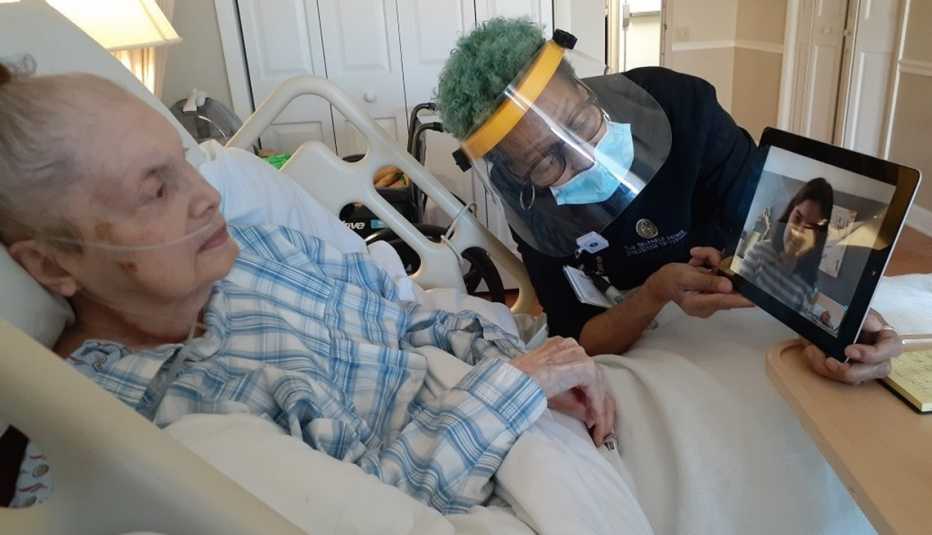AARP Hearing Center


| As it becomes clear that the pandemic isn't going away any time soon, family caregivers are increasingly concerned about loved ones isolated at home or in facilities. Many older adults and their family caregivers have few human interactions in “normal” times; the pandemic makes it much worse. Research indicates that isolation and loneliness are as detrimental to health as smoking 15 cigarettes a day. The good news: Younger generations are stepping up to help meet the needs by connecting virtually and building community from a distance. These new programs and approaches borne out of the coronavirus quarantine can have positive impact far beyond this pandemic. Here are three virtual intergenerational programs that bring hope for the future.
Lifting spirits with music and games
Maya Joshi and her twin sister, Riya, 15, began daily video calls with their grandparents when the pandemic lockdown started. Seeing how much her grandparents enjoyed it, Maya resolved to do something to help other isolated older adults. She talked with her family, called some friends and by early April 2020 she launched Lifting Hearts with the Arts. The intergenerational program involves teen volunteers connecting online with residents in 17 Illinois nursing homes and assisted living facilities via musical performances, games and 1:1 video chats. “It doesn't feel like work because it's so fun!” Maya says. She believes intergenerational connections are vital. “I think even before COVID-19 the social gaps between seniors and youth were increasing, and there's so much that the youth can learn from older generations."
The elders are benefitting, too. “These virtual activities are making a huge difference improving the residents’ moods,” says Rose Moore, director of programming at Springfield Supportive Living in Springfield, Illinois. After one resident grew more comfortable with the technology, she began initiating video calls with her friends and family. Another told Moore she was feeling lonely, bored and depressed, but the program lifted her spirits. “She has something to look forward to,” says Moore, “and she enjoys seeing their young smiles on the screen. We are all wearing masks, so the residents never get to see smiles.”
For more information email liftingheartswiththearts@gmail.com


































































More From AARP
Group Homes: Assisted Living on a Smaller Scale
Residential facilities may offer more personalized carePreserving the Dignity of Our Aging Parents
Provide autonomy and choices wherever possible
Coronavirus' Impact on Gen X Caregivers
They're being squeezed between the needs of their children and aging parents